
JOHN FROST, The Radical who risked his life for political reform
Tomos Povey South Wales Argus 1st June 2019
The Monmouthshire Merlin (published 1829-1888) published an obituary of John Frost at his death in 1877 reminding readers that
“The mere mention of the name John Frost once invoked an array of emotions among both the higher and ordinary echelons of society”.
He died in relative obscurity
Fast forward 142 years since his death and Frost's seemly eternal presence can be felt right across Newport city. His name appears to be ubiquitous: John Frost Square and John Frost School are two of the notable examples.
John Frost was born May 25th 1794
Writing in the Argus on the weekend following Frost's 235th birthday, TOMOS POVEY asks
WHO EXACTLY WAS HE? and
WHAT EXACTLY IS HIS RELEVANCE IN THE 21ST CENTURY?
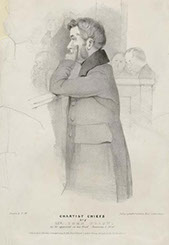 He was born in 1784 in Newport. His mother kept a pub – the Royal Oak – near the High Street.
He was born in 1784 in Newport. His mother kept a pub – the Royal Oak – near the High Street.
After working in Cardiff, Bristol and London, he returned to Newport aged 22 and opened his own draper’s shop.
Six years after his return, he married Mary, a wealthy widow, and over the next few years they lived above their High Street shop and raised a family of five daughters and two sons, as well as bringing up Mary’s two older children.
A sketch of John Frost when he was on trial
Despite becoming a successful businessman, his true calling was local politics.
Not being a substantial landowner, he was socially excluded from the politics of town and country.
The fundamental freedoms that we enjoy today – such as the right to vote and to stand for public office - were denied to the majority of people.
Political power across the country lay in the hands of major landowners. In this vicinity, the Morgan family – who owned Tredegar House and would later become the famed Lords of Tredegar – wielded such power and influence.
"This kind of behaviour made Frost incredibly angry and encouraged him to question the status quo," said historian Les James, who has studied Chartism for many years.
“Then in the 1820s Frost began writing pamphlets attacking the political situation.
“It was these injustices that the Chartist movement sought to end.”
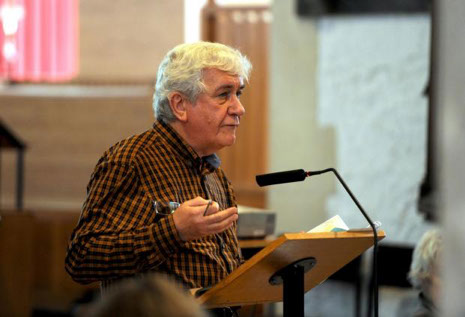
Les James delivering a lecture on Chartism
Frost’s aim of getting into politics became a reality in 1836. The 1835 Municipal Reform Act established that in all ancient boroughs, including Monmouthshire, councillors were to be elected by all ratepayers. Thus the legislation gave Frost the opportunity to be elected to Newport Town Council and later as Mayor of Newport.
He was fully aware that, while prosperous individuals like him had been granted a say in politics, the vast majority were still shut out.
Les James said: “Before the People’s Charter was published 8th May 1838 the name “Chartists” did not exist—but Frost was a very well known radical in Monmouthshire.
“Frost was an enthusiastic supporter of the People’s Charter. The aims of Chartism.were precisely the demands for constitutional change that he had always wanted.”
"He became a national figure in 1839, alongside William Lovett and Feargus O’Connor”
In 1838, the London Working Men’s Association – who then became known as the Chartists - drew up a charter with ‘six points’ which demanded: universal male suffrage, the removal of the property qualification for MPs, annual elections, equal constituency sizes, payment for MPs and secret ballots in elections
The following year in Newport, the arrest of Henry Vincent and three other prominent Chartists only exacerbated an already tense climate in the country.
And on November 4, 1839, Frost led enraged Chartists from Blackwood to Newport. Large numbers from other parts of Monmouthshire joined in.
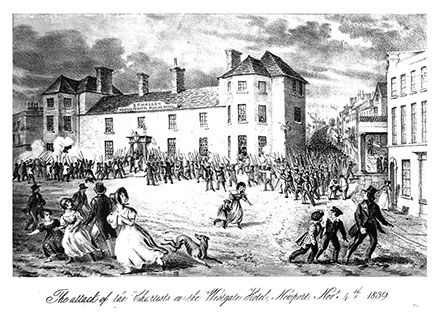 The attack on the Westgate Hotel
The attack on the Westgate Hotel
Thousands of people marched to the Westgate Inn - where Chartists were incarcerated.. The protesters demanded for Vincent and other imprisoned Chartists at Monmouth to be “released”. The soldiers then opened fired, killing 22 of those gathered.
“Frost believed in mass action, not violence,” said Les James.
“For all these years Frost had been walking a tight rope.
"He was never intending to use force.”
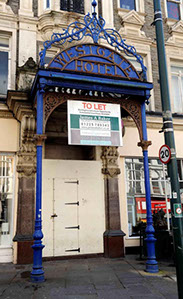 (Left: A photograph taken a few years ago of the Westgate Hotel)
(Left: A photograph taken a few years ago of the Westgate Hotel)
Those who were arrested that day were charged with high treason.
The following January, Frost, with fellow leaders William Jones and Zephaniah Williams, were tried at Monmouth's Shire Hall.
The authorities badly underestimated the growing popularity and admiration for Frost during the trial, and the news that the Chartist leaders were sentenced to be hanged, drawn and quartered ignited a wave of protests throughout Britain, causing the authorities to lessen the sentences to transportation to Van Diemens Land (Tasmania).
Campaigns continued for the next 16 years, calling for Frost’s pardon and return home.
Upon his return, crowds poured in to Newport, London and elsewhere to see and hear their ennobled champion.
Frost in his latter years
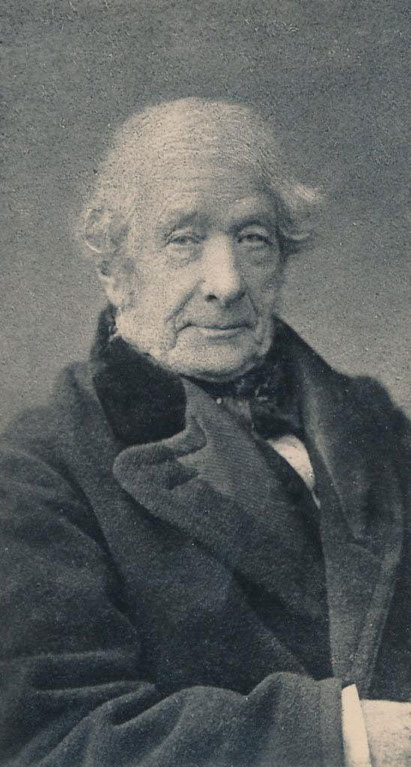
"There was a campaign by the Morgan family against him coming back to live in Newport," Les James explained.
"He went to live with his wife at Stapleton, near Bristol. She died a year later in 1857”
He died in 1877, aged 93.
Over the years the legacy of the Chartists did not fade away, resulting in politicians passing Reform Acts in 1867 and 1884.
By 1918 five of the Chartists' six demands had been implemented by the Government - only the stipulation of annual parliamentary elections was unfulfilled.
Les James stressed that people across Britain need to be aware of Frost’s lasting legacy.
He said: “He was important, not just locally, but nationally.
“He was one of the pioneers, who laid the foundation of our modern political system.”
The radical politician proved to be the fuel which propelled the explosive Chartist movement that would change the political landscape of Britain forever.
His and other Chartists' contributions towards achieving the freedoms we enjoy – albeit at times taken for granted – will long be remembered through the ages.
(This is an updated version of the Argus article, June 1st 2019)









